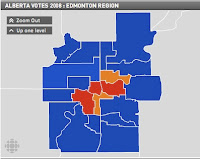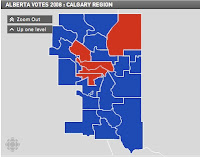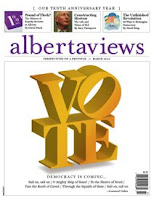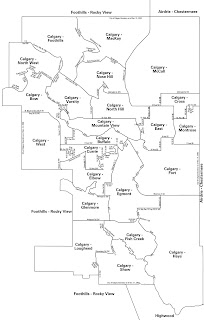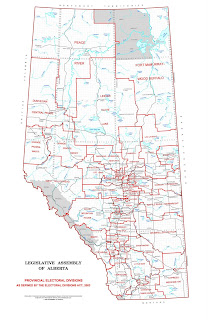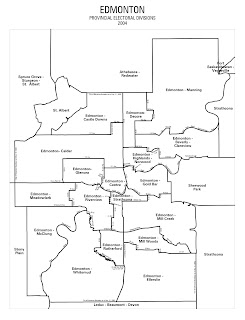There’s been no shortage of discussion and opinion on the topic of the abysmal 41% voter turnout in the March 3, 2008 Alberta provincial election. With such low voter turnout, it’s clear that none of Alberta’s political parties, nor the political process as it currently exists, are engaging Albertans. So, what needs to happen to re-engage Albertans?
One of the suggestions that I’ve heard being bounced around is mandatory voting. In today’s column, Edmonton Journal columnist Lorne Gunter defends “the right of citizens not to cast ballots if they are unmoved by the choices.“ Though I agree with Gunter (yes, that’s right…) in that I don’t think forcing citizens to vote through fines or penalties is a healthy way to engage anyone in the political process, I’m not sure whether the 59% of registered voters who stayed home on Monday did so on the basis of principle or apathy (I’m tending to believe the latter).
If apathy is the symptom, what is the cause? Some have suggested that the current first-past-the post electoral system is the cause. With Ed Stelmach’s Progressive Conservatives’ 52% of the popular vote translating into 88% of the Legislature seats, it’s clear that the composition of the next Alberta Legislature are not reflective of the votes cast province-wide on Monday’s election. Ken Chapman argues that mere electoral reform won’t fix the problem and I agree. Though I whole heartedly believe that Albertans need to take a serious look changing the electoral system, I think that it’s a bit naive to believe all of a sudden changing the way ballots are counted is the silver bullet that will boost voter turnout and engagement. It’s clear that there are deeper issues as to why Albertans are opting out of the democratic process, and Ken put it plain and simple:
“[t]he fix is for politics to become relevant to people’s lives.”
Easier said than done, but I couldn’t help but be reminded of my New Years resolution from 2007. Participation in democracy is a much broader and important act than simply showing up to vote every four years. Albertans need to reclaim their politics and stop letting politicians and partisan agendas frame the debates and define the issues which are driving the direction of our society. For politics to become relevant, Albertans will need to believe that they can effect change and the emergence of a strong civil society in the form of community and public interest advocacy groups is something that could re-engage Albertans more than any traditional political parties could dream of. Albertans need to take ownership over their province and their political process, and re-engaging on the community and civil society level is probably the easiest way to begin this process.
Alberta’s future is too important to leave all the decisions to the 83 men and women under the dome. Alberta’s future is too important to allow the defining debates only occur within the traditional realm of partisan politics.
Rumour on the street is that Tory Premier Ed Stelmach will be appointing an unsuccessful Progressive Conservative candidate to head a task force to study why Albertans didn’t show up to the polls on Monday. If this is the case, and if the Premier is sincerely interested in discovering why the majority of Albertans are tuning out of the politics, he really shouldn’t have to look any further than the rumour of another partisan patronage position to discover why Albertans are opting out of traditional politics.

